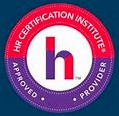2-Hours Virtual Seminar on Workplace Investigations 101
Duration : 2 Hours

This course, has been approved for 2 HR (General) recertification credit hours toward aPHR™, PHR®, PHRca®, SPHR®, GPHR®, PHRi™ and SPHRi™ recertification through HR Certification Institute® (HRCI®).
Dr. Susan Strauss,
Dr. Susan Strauss is a national and international speaker, trainer, consultant and a recognized expert on workplace and school harassment and bullying. She conducts harassment and bullying investigations and functions as an expert witness in harassment and bullying lawsuits. Her clients are from b Read more
When we think of workplace investigations, the most common thought is that of investigating harassment complaints. However, there are so many other forms of workplace misconduct that require investigations such as: theft, safety or OSHA issues, retaliation, vandalism, working off the clock, substance abuse, social media violations, and violations of various company policies, as examples.
Usually this responsibility is left to HR, sometimes to management, and there may be a need to determine if an outside investigator, such as law enforcement or an IT professional, is the best person to investigate.
Conducting an investigation is both a science and an art. There is the scientific/technical aspect ensuring the I’s are doted and the T’s are crossed to minimize liability. And there is the ‘art’ of investigating in establishing rapport with those you interview, creating a safe environment in which to interview, and recognizing that interviewees are usually stressed during the interview process.
As an employer you have a duty to investigate. Employees have an obligation to cooperate with the investigative process—but what if you have a recalcitrant complainant, wrong-doer or witness? Documentation and writing a final report are critical aspects of an investigation process which begins as soon as an employee makes a complaint—do you know how to document? Do you know the critical elements of a final report to minimize liability? One of the first questions you, as an HR professional, need to consider is whether the complaint requires a full-blown formal investigation or if a less formal resolution is appropriate because the complaint is a minor policy violation.
What do you do if you need to search the employee’s desk, computer, smart phone or locker? Other questions that need to be answered are when do you include legal counsel? What evidence do you need to gather?
This webinar will focus on these issues by discussing best practices to ensure you are conducting a fair and impartial investigation that will support a positive work environment, protect employees and the organization, and decrease the risk of liability.
Anyone who conducts an investigation must be trained in how to do so. Merely having the experience of conducting investigations without having been taught the art and science of the process is not enough. When your organization ensures it is investigator is trained in how to conduct investigations, it demonstrates its commitment to prevention of harassment to the Court or outside agency.
The webinar addresses laws that HR is responsible for upholding. When the laws are not followed, it increases the liability for the organization and interferes with a fair and equitable work environment for employees
Course Objectives:
• Identify what constitutes a complaint
• Determine if an investigation is necessary
• Discuss the steps of an investigation
• Explore the intricacies of interviewing the accuser, accused and witnesses
• Demonstrate good documentation
• Differentiate between a formal and informal investigative procedures
• Determine credibility
• Discuss tips on whether someone is lying
• Reach a conclusion following an investigation
• Follow up with appropriate action based on the outcome of the investigation
• Write a formal report outlining the investigation
Course Outline:
• Discussion about if and when an investigation is required
• Comparison of a formal and informal investigation process
• Planning for the investigation
• Review of what constitutes a witness
• Legal issues surrounding an investigation such as confidentiality, defamation of character, and false imprisonment
• The importance of documentation of each interviewee
• Examples of appropriate and inappropriate documentation and why it is critical
• Specific details regarding how to corroborate evidence
• List of criteria to determine credibility of those interviewed
• The role of the investigator in forming an opinion following the investigation
• How to follow-up with the target, accused, and the organization
• The critical importance of an investigative report
• List of misconduct triggers that are a catalyst for an investigation
• Template final report
What You Get:
• Training Materials
• Live Q&A Session with our Expert
• Participation Certificate
• Access to Signup Community (Optional)
• Reward Points
Who Will Benefit:
• VP of HR
• All HR Directors, Managers, and Generalists
• Director of Risk Management
• Managers and Supervisors
• Team Leads
• HR Consultants
Please reach us at 1-888-844-8963 for any further assistance or if you wish to register

100% MONEY BACK GUARANTEED
Refund / Cancellation policyGet In Touch
Similar Trainings
Dress Codes, Appearance and the Workplace
LIVE : Scheduled on
22-April-2024 :01:00 PM EDT
|
FMLA Compliance: A Comprehensive Guide & Strategies for Effective Implementation
LIVE : Scheduled on
23-April-2024 :01:00 PM EDT
|
Presentation Skills for Workplace Success: Confidently, Stand-up, Deliver & Make an Impact
LIVE : Scheduled on
23-April-2024 :01:00 PM EST
|
Terminating Employees Safely
LIVE : Scheduled on
24-April-2024 :01:00 PM EDT
|
HR Metrics and Analytics - Update on Strategic Planning, Application Activities, and Operational Impact
LIVE : Scheduled on
25-April-2024 :01:00 PM EDT
|
